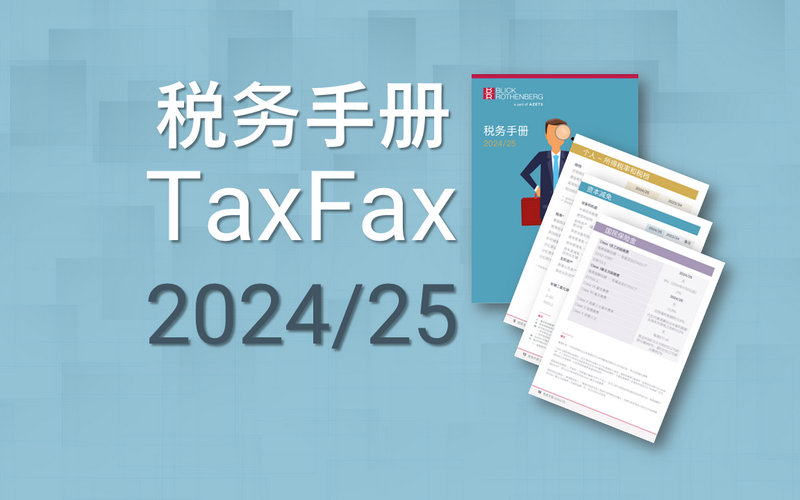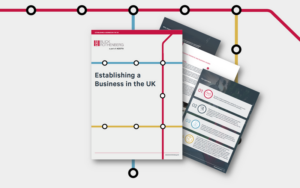Spring Budget Statement Twitter Q&A with Nimesh Shah
We recently hosted a Twitter Q&A with our CEO Nimesh Shah answering your questions on the Spring Budget Statement.
This is a transcript of the session:
Introduction by Nimesh
Jeremy Hunt’s laboured Budget speech, lasting over an hour and double the length of his predecessor’s ill-fated Mini-Budget, told us nothing new – and that was before the various leaks over the last few days.
In many ways, it was a Budget statement that characterised Jeremy Hunt himself – logical, solid but underwhelming in large parts.
I thought at a Budget that the personal tax allowances and thresholds are normally increased, but nothing was announced. Why was this?
You are right that the Government would normally announce the new allowances and thresholds for the next tax year. But the majority of allowances and thresholds have been frozen at the same level since 2021 and this will be the case until 2028. The decision to freeze allowances/thresholds was originally announced in Rishi Sunak’s 2021 Budget – it was expected to run until 2026 but Jeremy Hunt extended the measure to 2028 at his Autumn Statement last November. You can check your personal tax position using Blick Rothenberg’s interactive tax calculator – https://discover.blickrothenberg.com/spring-budget-2023
You can also download our TAXFAX for the upcoming 2023/24 tax year which has all the latest rates and allowances.(A PDF reader is required)
I’ve been previously told that I am restricted on how much I can put in my pension each year, but I understand that those rules were relaxed at the Budget. How does this work?
Currently, you can contribute a maximum of £40k gross to pension each year and receive tax relief. The £40k annual allowance is reduced where your adjusted net income exceeds £240k – it is reduced by £1 for every £2 over this limit until it reduces to £4k. At the Budget last week, the annual allowance was increased to £60k and the point at which the amount starts to taper starts at £260k. The minimum amount was also increased from £4k to £10k. Essentially, the rules were relaxed to allow more people to contribute more to their pensions and achieve tax relief. Pensions is a very complicated area with lots of moving parts so it’s best to take specialist advice before you do anything.
I read that HMRC are clamping down on people who hold cryptocurrency and there was an announcement at the Budget – what was this?
As part of HMRC’s continued focus on crypto – on cryptocurrency – a new section will be introduced on the self-assessment tax return for crypto asset disposals. It is likely that HMRC will use this information to check that disposals of cryptocurrency has been reported correctly and may also trigger enquiries. There has been a misconception that profits made from trading cryptocurrency are not taxable, but this has never been the case, and the Government and HMRC have been increasingly concerned with non-compliance. The specific reporting is the latest move to increase transparency in this area.
Can I take more out of my pension tax-free as the Government have abolished the lifetime allowance?
For me, the surprise announcement was the removal of the Lifetime Allowance, which is currently just over £1 million. When Jeremy Hunt announced this during his speech, I thought that this will allow people to take greater sums out of their pension tax-free. However, the devil is in the detail and the Budget notes confirmed that the tax-free sum will still be capped at 25% of £1,073,100 (£268,275) excluding those with protected pension pots.
I read that the limits on how much someone can invest in the Seed Enterprise Investment Scheme have increased, but I don’t know by how much?
This was buried in the detail of the Budget notes following the speech. From 6 April 2023, the annual investor limit is doubling to £200k – also, the amount an eligible company can raise under SEIS is increasing by £100k to £250k. As a quick reminder, SEIS gives you 50% Income Tax relief for amounts invested – the overall relief can be up to 86.5% depending on your circumstances. Worth remembering that these are traditionally high-risk investments and important to take specialist advice.
I know that the Government decided to increase Corporation Tax to 25%, but does this apply for all businesses?
Corporation Tax is confirmed to increase to 25% from 1 April 2023. But the 25% rate applies for companies making profits of over £250k. Companies with profits of less than £50k will continue to pay 19%. There is a marginal rate of Corporation Tax of 26.5% on profits between £50k and £250k. As an example, a company making profits of £100k will pay an effective rate of Corporation Tax of 22.75%.
I am potentially affected by the removal of the pensions cap but concerned what could happen if I contribute and then the Labour Party get in and reverse it.
On the day after Jeremy Hunt’s Budget, Labour said that they would reinstate the lifetime allowance. If this happened, the re-introduction of the lifetime allowance shouldn’t theoretically have retrospective effect, (but it can’t be completely ruled out). I would expect that Labour would need to introduce another form of fixed protection. Some individuals are looking to maximise pension contributions between now and the next election; I’ve also heard some anecdotes that people could take early retirement by withdrawing from their pensions before Labour reinstate the lifetime allowance!
I am trying to plan my pension contributions for next year but I’m not clear on the difference between my income and adjusted income, which seems to be relevant. Can you explain?
To work out if you are affected by the tapered pensions annual allowance, you need to know for that tax year – 1) net income, 2) pension savings, 3) threshold income, and 4) adjusted income.
From 6/4/23, if your adjusted income is over £260,000, your annual allowance will be reduced.
You calculate your net income by adding up all your taxable income for the tax year and deduct any tax reliefs that apply, like payments made to your pension scheme that had tax relief but were paid before the relief was given.
For adjusted income, you start with your net income – add the amount of claims for tax reliefs on pension savings where they were paid before tax relief was given; and add pension savings made to your pension schemes where tax relief was given.
As pension pots fall outside Inheritance Tax does the surprise abolition of the Lifetime Allowance provide wealthy individuals / couples with the opportunity to put even more than planned into their pension pots.
I believe that’s right – the pensions reforms in 2015 meant that people can pass on their pension funds free from Inheritance Tax. If the pension fund member dies before 75, their beneficiaries can withdraw the entirety of the pension fund without Income Tax. If the member dies after 75, the beneficiaries would pay Income Tax at their marginal rate. I expect people will want to use pensions for Inheritance Tax planning to a greater extent now that the Lifetime Allowance has been abolished – however, people affected by the tapered annual allowance will still be restricted to the amount of tax relievable pension contributions in a tax year (which could be as little as £10,000 gross).
Is there anything else obvious and easy he could have done to help non wealthy people?
I would have liked to have seen the unfreezing of the personal tax allowances and thresholds. I’ve read some analysis which suggested that the frozen allowances until 2028 will be the equivalent of a 4% increase in the basic rate of Income Tax. I would love to see changes (or complete abolition) of the Child Benefit Charge – a friend of mine was caught out by the charge earlier this week. You can read my blog marking 10 unhappy years of the high-income child benefit charge.
If you were a betting man what are the chances of a wealth tax if Labour win the next election?
For the record, I’m not a betting man! The Labour Party have definitely yo-yoed on the wealth tax and they haven’t mentioned it in their recent announcements. Labour have been very vocal about changing the carried interest rules so the carried interest gains are taxed as income up to 45% and abolishing the non-dom regime. I personally can’t see a Keir Starmer-led Labour Government introducing a wealth tax.
When is the next Budget from the Government?
That’s a good question and the answer is that we don’t know! My guess is that we will probably have an Autumn Statement in October/November this year, where we could see more progressive announcements on tax. Last week’s Budget contained fairly limited announcements, which wasn’t unexpected. The next Budget may be more exciting (or at least we hope so!)
For full insight and analysis of the Spring Budget Statement visit our Budget Hub.
Contact Nimesh

You may also be interested in

AI is a support for businesses but not a solution

Labour’s plans won’t scratch the surface of the tax gap










